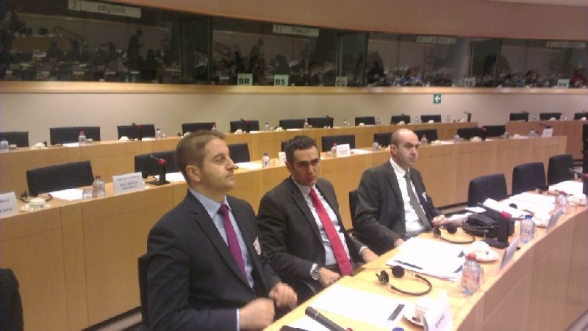Delegation of the Committee on Economy, Finance and Budget of the Parliament of Montenegro participated in two-day parliamentary seminar on the topic “Economic crisis and its influence on the policies of the European Union and countries in the accession process”, held in Brussels, on 25 and 26 November 2013, in the organisation of the European Parliament.
During the seminar, the following topics were discussed: the influence of the crisis and global dimension of EU, new oversight mechanisms and coordination of economy policies, strengthening the role of European institutions, new strategies for improving employment growth, involvement in a competitive process, creation of the Banking Union and manner of solving the problem of public debt and deficit and finally the role of civil sector in finding manners for overcoming the crisis.
MPs also discussed numerous data on trends and on – how the global crisis influenced the most important growth indicators in the regional countries.
The need of strengthening economic management in the EU in the field of fiscal policy was particularly emphasised as well as the need of strengthening the rules relating the amount of public deficit and public debt.
Within the special segment, effects of economic crisis to the regional countries were analysed, through presentations of parliaments' representatives from Albania, Bosnia and Herzegovina, Macedonia, Serbia and Turkey, and the significance of regional cooperation in the field of trade, infrastructure and energy was also pointed out.
At the end of the seminar, through final considerations, it was concluded that the European Union had shown that it was subjected to changes, adapting itself to new challenges, that the euro had become stable despite some challenges and that the EU was opened to receive some other countries in its membership.
In addition to parliamentary delegation of Montenegro, the seminar was also attended by delegations of Albania, Bosnia and Herzegovina, Kosovo, Macedonia, Serbia and Turkey.








